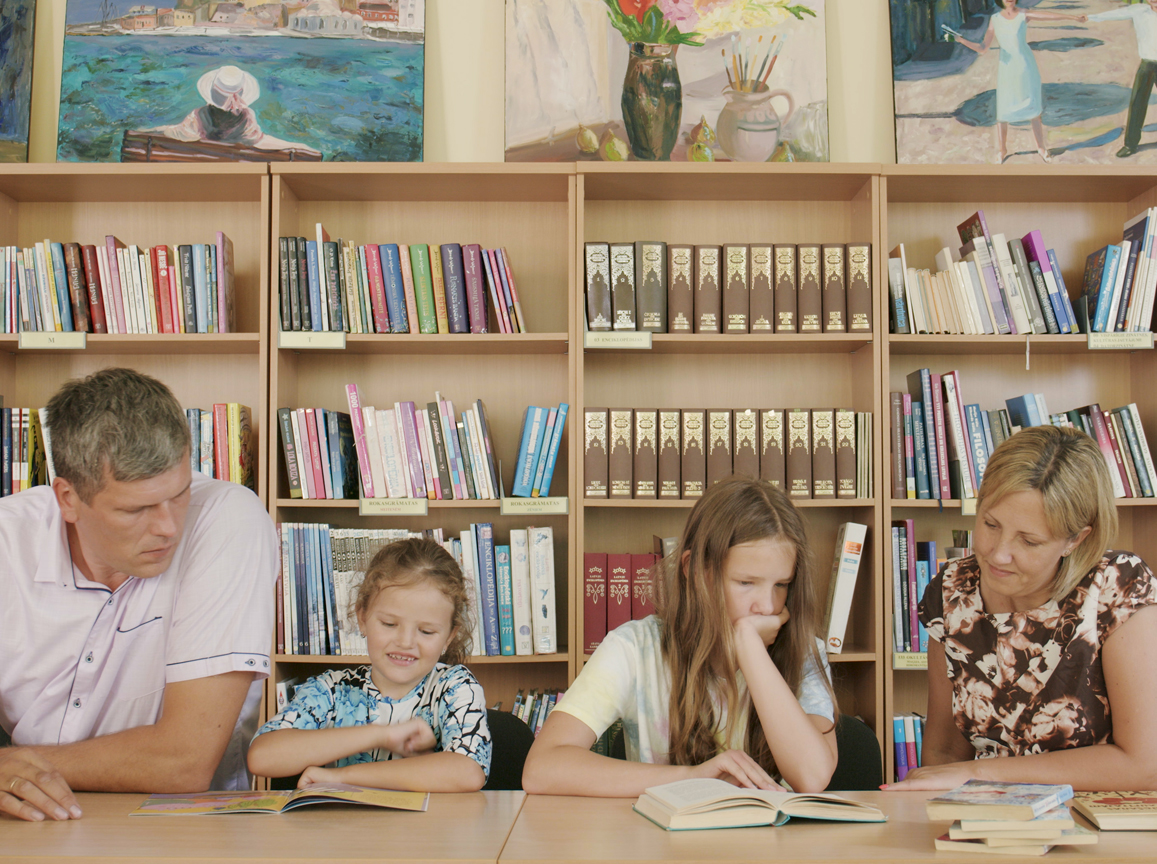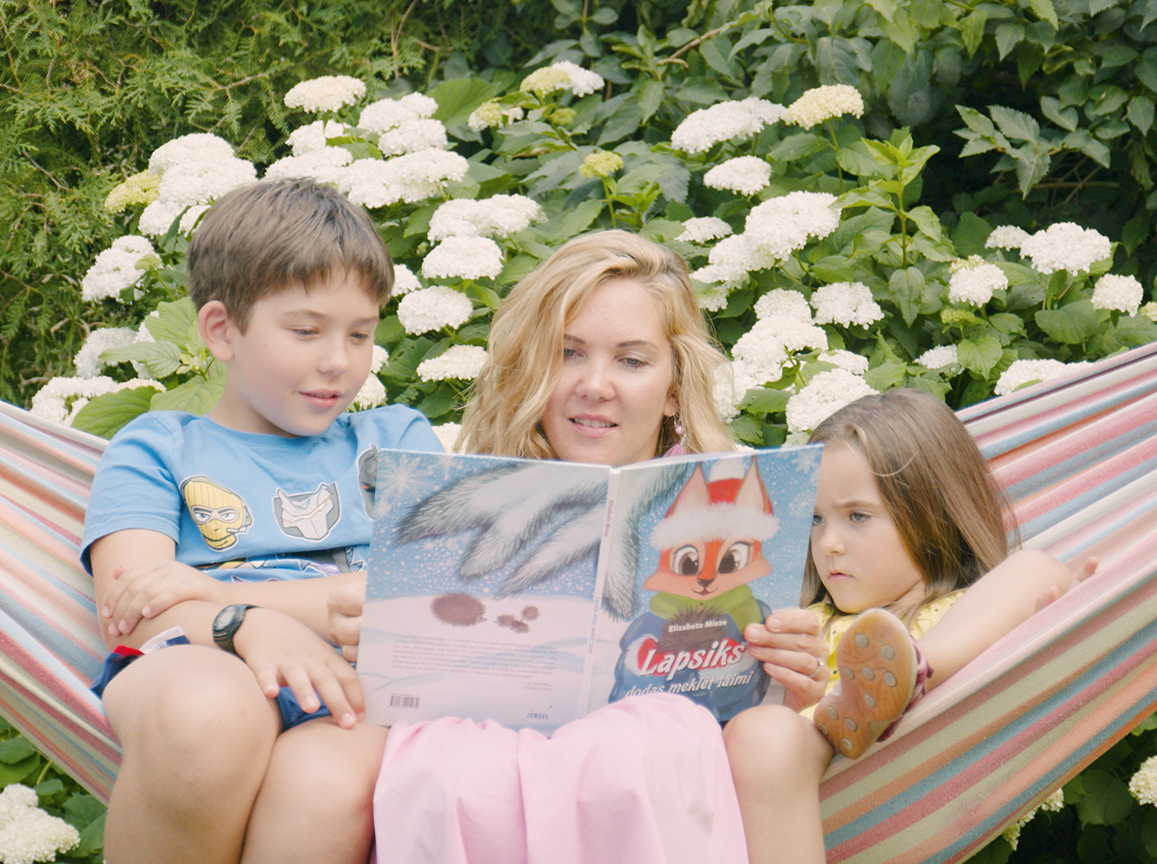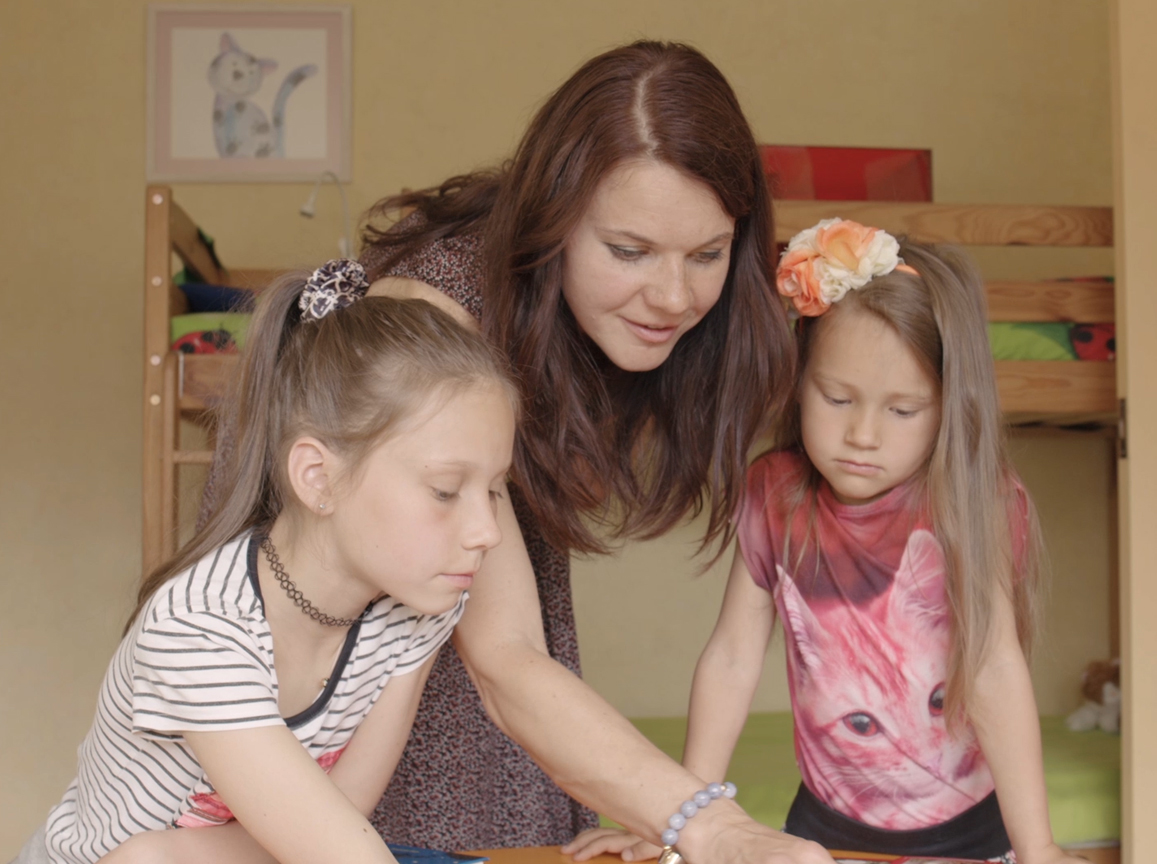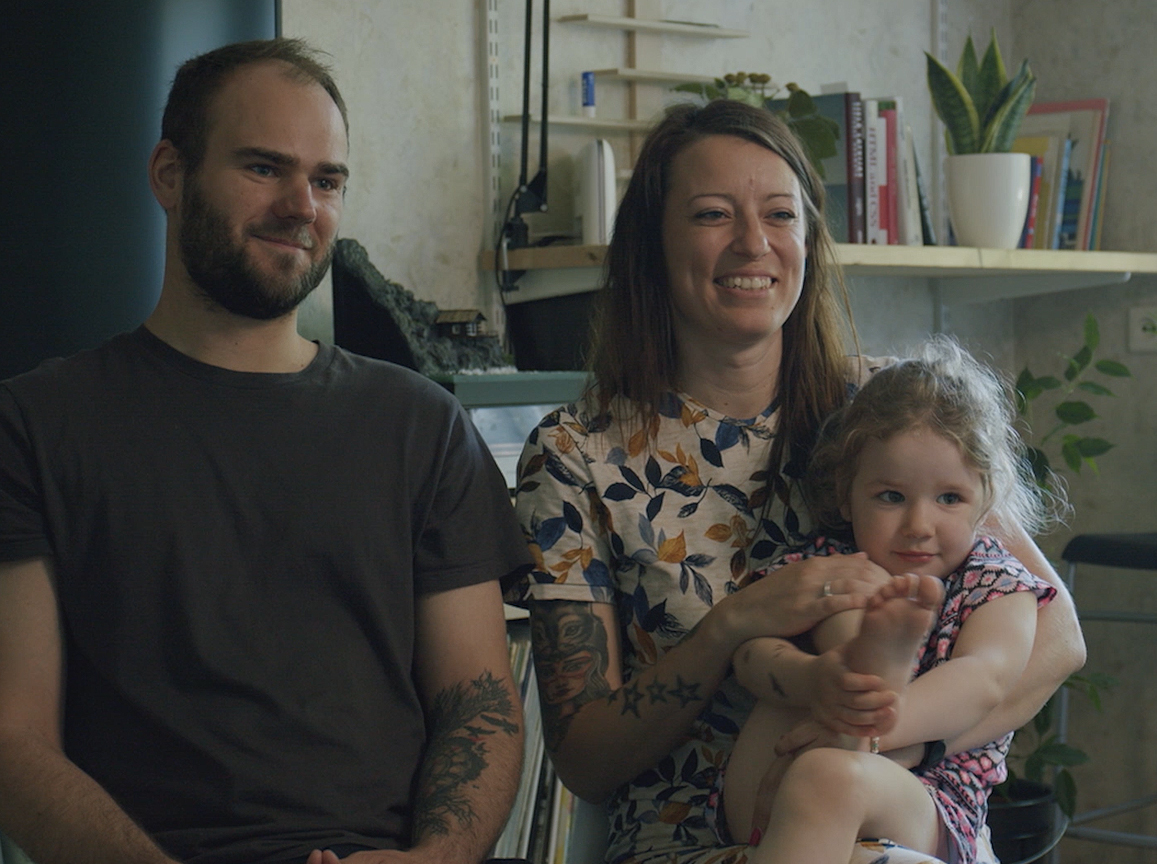Series of video stories 'To fall in love with a book!'
A series of video stories with the participation of Latvian families. Parents' stories about encouraging a love for books in their children, about developing conscious reading traditions and reading habits within the family.

Jurševskis’ family reading story
Jurševski family, where two daughters – Linda and Marta grow up – enthusiastically tells about the interesting reading experience. Reading aloud, Dad Aivars once replaced the names of the book's characters with the names of the children, their friends, and acquaintances, thus vividly 'reviving' the events described in the book in the children's imagination. 'I could feel that my daughter was in characters with her heart and soul,' Aivars says. 'I was also sitting in the other room and listened with interest,' Mom Liene complements. Daughter Linda also agrees that this book read by father especially stuck in her memory.
Jekševic-Krutovs’ family reading story
'For children to develop a love for a book, it is important to read aloud for them,' Mom Baiba says; she, with her husband Lauris, is raising two children – Pēteris and Anna. Anna is still in the process of learning letters, while Pēteris has learned literacy 'in the streets' – he has learned to read the inscriptions on the roadsides while driving by tram. Reading became especially exciting to his son when he realized that what was written meant something! It was a great discovery, and it turned out that the reading could help to solve many problems, which have previously required parental assistance to decipher.


Lindes’ family reading story
Linde’s family has six children, and reading books is an integral part of their daily life; especially because children are educated through homeschooling. An important event in children's life is obtaining their library card and weekly library visits, which are consciously developed as a tradition and significant event. 'The key to children’s love for books is a parents’ desire to dedicate time for their children,' Mom Ruta says. 'The parents have to give the time, which is due to the child, and why not it is reading a book,' Dad Kārlis adds.
Donaldsons’ family reading story
'The children models themselves on their parents and the children are a mirror of parents,' Zane Donalsone says; she, with her husband Skots is raising two young people – Dāvis and Rebeka. 'If parents do not read books, children also will not. It is important to set a good example, as well as make the environment in such a way that the books would be accessible to children.' The Donaldsons are active library visitors and the books serve for both children as a way to explore the world. In the family, attention is also paid to ensuring that the children do not spend too much time on technologies. 'Denying access to technologies does not mean be angry with a child, it means doing something for a child's future,' Skots Donaldsons says.


Aleksejevs’ family reading story
'Reading books aloud for a child can help to create an emotional connection between children and parents,' jeļena Aļeksejeva expresses with confidence; she works at 'Baltic International Bank' as an accountant-analyst daily. The little son of the Aleksejev’s family- Jaroslavs is learning literacy in two languages – Latvian and Russian.
During the conversation with Jeļena, we noticed that acquire books for her child with care and purposefully. They are chosen to develop the child's thinking and serve not only to learn literacy skills but also to develop other senses.
Eihmans’ family reading story
Sometimes, for a child to learn reading skills so much-needing in life in an emotionally enjoyable way, parents have to use their imagination, and sometimes this imagination pays off. So happened in Eihmaņi family; to inspire the son to learn the letters, his Mom Līva has created an alphabet suitable for her son, the illustrations and stories of which are now loved by other children in Latvia. The initial idea has evolved into the popular Book 'Boys’ Alphabet'. Today, the main initiator of the book, Ernest, is a great reader, and his sister Nora is also in the process of active letter learning.


Vaļki family reading story
'Parents need to be creative,' Ilze says; she pays attention to making it possible for children to meet the characters of the books also in real life. 'Nowadays, there are a lot of opportunities that allow for looking at the book from a very different angle. When we read a book with children, try to listen and watch what is happening around, where we could learn more about the topic of the book – to find an opportunity to feel the characters also in some other form. I can see that it works; and I see how children became interested both in reading and other fields directly or indirectly related to literature.'
Raudzepi family reading story
Dace and Ivars Raudzepi are reading fairy tales to her daughter Emīlija every night since the daughter was only half a year old. 'Even when she did not understand nor was interested in, we already created it as a ritual,' Dace shares her experience. 'It was done to consciously show the child that the books exist, they are interesting and she should also learn to read someday,' Ivars adds. Emīlija is now three years old and the family has been noticing the first results for some time. The daughter had started speaking at an atypically early age. At the age of one, one and a half, she was able to form sentences of two or three words. Parents think that this is the merit of books.

